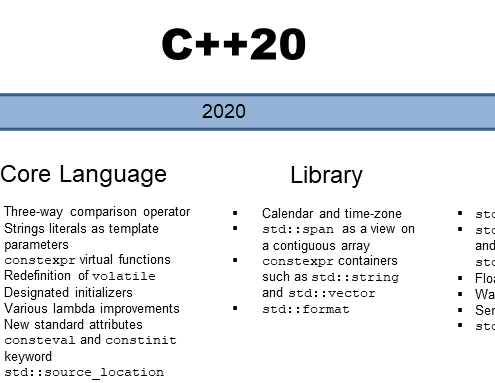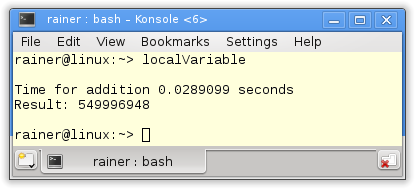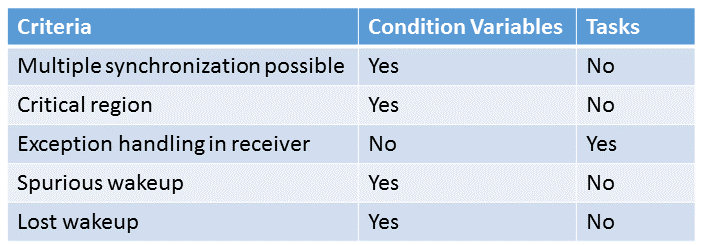Posts

Executing a Future in a Separate Thread with Coroutines
/
0 Comments
This post concludes my posts about co_return in C++20. I started with an eager future, and continued…

Lazy Futures with Coroutines
Based on the coroutines-based implementation of a simple future in my last post "Implementing Simple…

Implementing Simple Futures with Coroutines
Instead of return, a coroutine uses co_return returning its result. In this post, I want to implement…

Synchronization with Atomics in C++20
Sender/receiver workflows are pretty common for threads. In such a workflow, the receiver is waiting…

The End of my Detour: Unified Futures
After the last post to executors, I can finally write about the unified futures. I write in the post…

C++ Core Guidelines: More Rules about Concurrency and Parallelism
Writing multithreading programs is hard, even harder if the program should be correct. The rules of the…
std::future Extensions
Tasks in the form of promises and futures have in C++11 an ambivalent reputation. On the one hand, they…

Multithreaded: Summation with Minimal Synchronization
Until now, I've used two strategies to summate a std::vector. First, I did the whole math in one thread…

Thread Synchronization with Condition Variables or Tasks
In case you use promise and future to synchronize threads, they have much in common with condition variables.…
The Special Futures
The parent of a thread has to take care of their child. The parent can wait until his child is done or…
